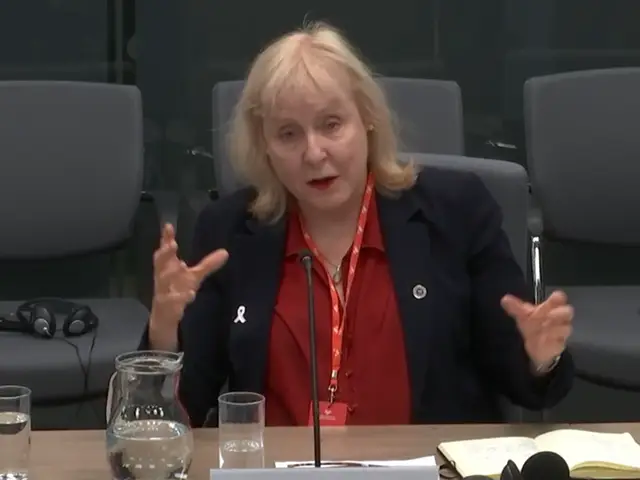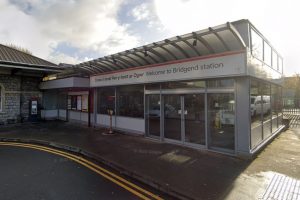COUNCIL chiefs claimed the Cardiff region city deal is “more than on course” to create 26,000 jobs by 2036 despite delivering 4,335 jobs in the decade to date.
Mary Ann Brocklesby – chair of the Cardiff Capital Region (CCR), a partnership of ten councils – gave evidence as a Senedd inquiry into city and growth deals got under way on June 4.
The Conservatives’ Samuel Kurtz, a member of the Senedd’s economy committee, questioned figures for creating and safeguarding jobs as part of the £1.2bn city deal, which was signed in 2016.
Cllr Brocklesby said 1,537 direct jobs have been created – of which 1,152 were relatively temporary jobs in construction – with 1,029 jobs safeguarded, 261 employed through a graduate scheme, and 93 apprenticeships.
Pressed about hitting the initial goal of 25,000 jobs, she told the committee: “We’re more than on track… it’s shared with Transport for Wales [TfW] but we would expect at the present rate of progress it would be more like 26,000.”

Mr Kurtz expressed concerns about accountancy errors, asking how the witnesses ensure that the city deal is not claiming success by double counting jobs.
Kellie Beirne, chief executive of the CCR, replied: “Based on the business cases that we have in train and those that we have in the pipeline, over the lifetime of the deal we’re looking to achieve 26,203.”

Plaid Cymru’s Luke Fletcher said: “The figure obviously looks great on a press release but I’m really interested in how you’ve come to that figure.”
Ms Beirne responded: “It’s not an art or a science – they are projections and forecasts.”
She added: “Numbers are important because we’re held to account for targets but I think the important thing, getting under the skin of this, is: what are the quality of those jobs?”
Cllr Brocklesby pointed to progress on a deal for redevelopment of Cardiff Central railway station, the Merthyr Tydfil rail interchange, and improvements at Pontypool and New Inn.
She stressed the importance of making the region more competitive as well as connected, pointing to the “world-leading” semi-conductor cluster in Newport.
The Labour leader of Monmouthshire Council told the committee the city deal has leveraged in more than £112m of investment, with 4,335 jobs in total.
Ms Beirne said £735m has been earmarked for TfW to deliver the South Wales Metro.
She said: “The other £495m sits in what we call our wider investment fund. So, expenditure to date is over £119m… added to that we’ve got co-investment of around £240m.”
Pressed about projects on the “danger list”, Cllr Brocklesby said: “Some of the projects don’t work so well but we recognise you take that risk if you’re trying to grow an ecosystem.”
Ms Beirne raised the example of a £35m fund to boost housebuilding in south-east Wales.
On the Cardiff Central project, Ms Beirne confirmed the first stage of the plan does not include links to Cardiff airport but “there’s certainly hopes and ambitions”.
She said the first phase includes improving the valley lines, more trains to London each hour and the Cardiff crossrail project – a tram-train link to the docks.
Asked how the city deal distributes wealth of the region beyond the capital, Cllr Brocklesby pointed to a £50m fund for businesses in the northern valleys.
“You know as well as I do that the region is deep with structural inequalities,” she said.
Labour’s Jenny Rathbone cautioned that the answer should not be making it easier for everyone to get a job in Cardiff, asking: “How is this £50m going to ensure this is not just about growing our capital city into a monster that nobody will want to live in?”

Cllr Brocklesby stressed that nine of the ten council leaders are from outside Cardiff, with the witnesses highlighting investments in Blaenau Gwent, Bridgend and Ystrad Mynach.
Of the 731 small businesses supported, Ms Beirne gave a breakdown of: 40% in Cardiff; 10% in both Caerphilly and Newport; 7%, Bridgend, RCT, Torfaen and Vale of Glamorgan; and 4% in Merthyr, Blaenau Gwent and Monmouthshire.
She said the geographical spread of jobs created is not monitored but she pointed out, as an example, that people from across the region are employed by the foundry in Newport.
She told the committee: “This isn’t about splitting the pie ten ways… everyone can benefit but it’s impossible for everyone to benefit to the same degree.”















